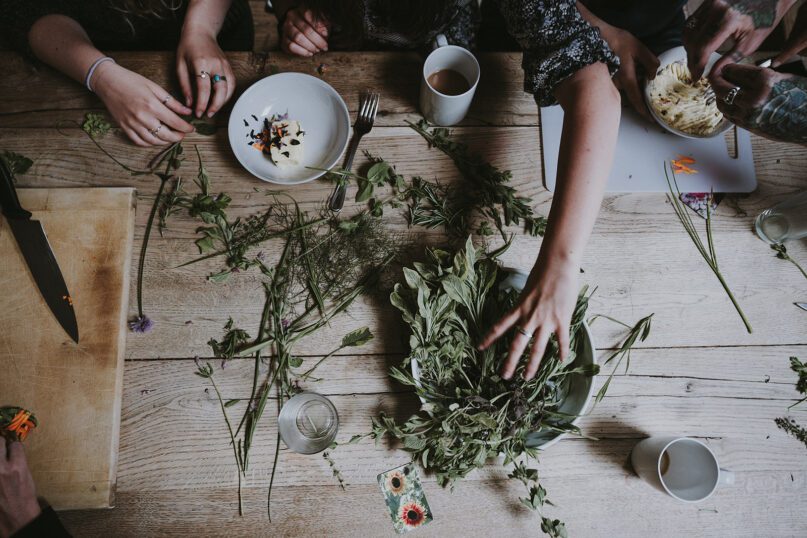(RNS) — Over the course of two centuries, ayurveda — the ancient philosophy of the Indian subcontinent — has spread West, informing ideas about healthy lifestyles with holistic skin care, diet and exercise. The COVID-19 pandemic seems to have propelled ayurveda further into the mainstream, as housebound yogis, chefs and spa owners — believers, if not Hindus — percolated new techniques and businesses based on the practices developed since it began more than 3,000 years ago.
New York City has become a hub of the ayurveda trend, where the creative forces behind new ayurvedic restaurants, spas, health clinics and yoga studios are collaborating, working out how to apply the philosophy to their disciplines authentically, to avoid turning the trend into a simple marketing gimmick.
Ayurveda can be traced back to the Hindu scripture known as the Four Vedas and translates literally as “knowledge of life” (or, more precisely, “systematic knowledge of the life span”). As a health regimen, it offers herbal remedies for internal ailments, based on the idea that the mind, body and soul are connected to the elements and that health problems arise when these elements are out of balance. It emphasizes the body’s material composition, or prakriti, and its energies, or doshas.
Often referred to as a “spiritual science,” ayurveda is intended to help followers along their own journeys to self-realization.
RELATED: Yoga’s ‘father in the West’ still defining our spirituality and celebrity 100 years later
Though it doesn’t demand adherence to Hinduism or any single faith, ayurveda still thrives in Hindu-majority India, where the pandemic spawned increased demand for ayurvedic products and services that improve immunity and respiratory capacity. It was there, in Vrindavan, one of the country’s holiest cities, that Divya Alter met ayurvedic practitioners who helped her heal from autoimmune and chronic digestive illnesses she’d suffered for years.
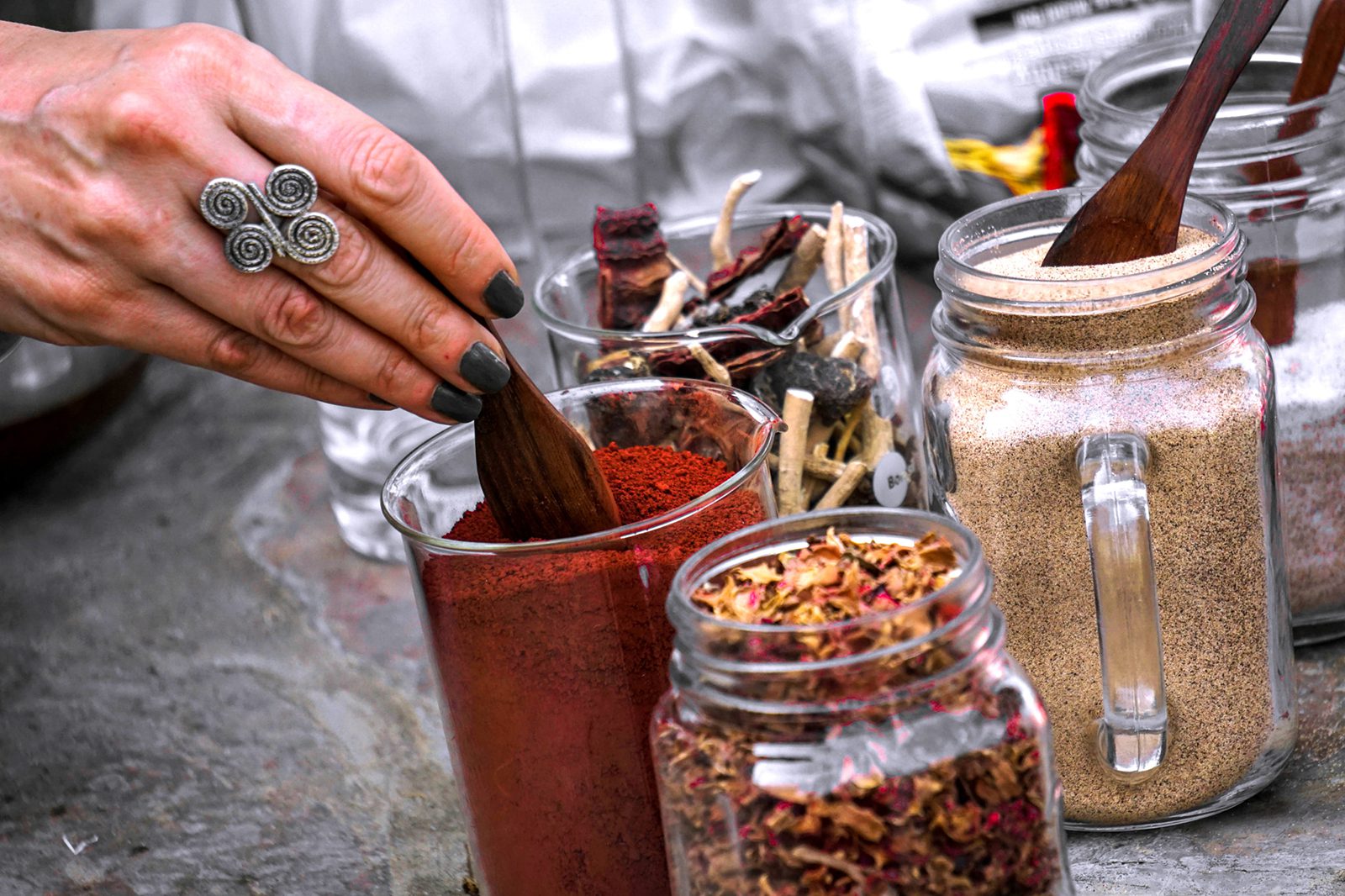
Ayurvedic preparations displayed in Delhi, India, in 2016. Photo by Hans Vivek/Wikipedia/Creative Commons
She stayed in Vrindavan for five years, studying ayurveda, bhakti spiritual philosophy and Sanskrit. “My sick body became my biggest obstacle in my spiritual life,” said Alter. “I realized that the body is a gift from God, and I’m meant to take care of it so I can evolve on my spiritual path.”
After moving to New York City in 2009, Alter, who is Bulgarian, and her husband, Prentiss, founded Bhagavat Life, a nonprofit culinary school dedicated to teaching ayurvedic principles of local, freshly made, seasonal food. The school established the United States’ first Ayurvedic Culinary Certification in 2015. Two years later, Divya Alter published “What To Eat For How You Feel,” which collects her recipes and teaches the basics of ayurvedic eating.
“Part of my work is to preserve and present authentic practice and to teach it in a way that’s very easy to understand and very easy to apply,” said Alter.
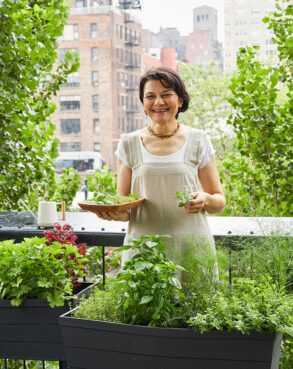
Divya Alter has co-founded Bhagavat Life and Divya’s Kitchen in New York City. Photo by Rachel Vanni
The school has grown from four students to more than 500 in just five years, growth Alter attributes to New Yorkers’ increased desire for organic and plant-based nutrition. She points to the attention paid to the city’s mayor, Eric Adams, a vegan whose public health policies advocate healthy eating.
In 2016, the Alters opened Divya’s Kitchen in the Lower East Side of Manhattan, calling it “modern cuisine based on ancient principles.” The menu offers curries and other South Asian-influenced dishes and lasagna incorporating bechamel sauce made from cashew or sunflower milks.
Until recently Divya’s had company in the Ayurveda Cafe, an Upper West Side restaurant opened more than two decades ago by Tirlok Malik, an India-born filmmaker and actor who learned ayurveda directly from Dr. Vasant Lad, subject of the 2018 documentary “The Doctor From India” that tells the story of the prominent ayurvedic physician’s mission to bring ayurveda to Westerners.
Malik has a simple view of ayurvedic philosophy: “Ayurveda says accept everything, reject nothing and choose what is good for you,” he said.
The cafe fell victim to COVID-19’s upheavals and closed in July, but besides being a local favorite, it attracted those with special dietary needs, including strict Buddhists and Jews but also those who looked to plant-based food for healing.
Shaun Kaminoff, a regular patron, traveled to India to get ayurvedic treatment for his chronic pain. He said ayurveda’s focus on healing the whole person, rather than just diseases and symptoms, inspired him to find ayurveda when he came back to the U.S.
Kaminoff said besides his pain, ayurveda can calm the nerves in an intense city. “You want to do something to counteract the environment you’re in,” he said.
RELATED: Why the Hindu spiritual tradition of vegetarianism is getting a fresh start
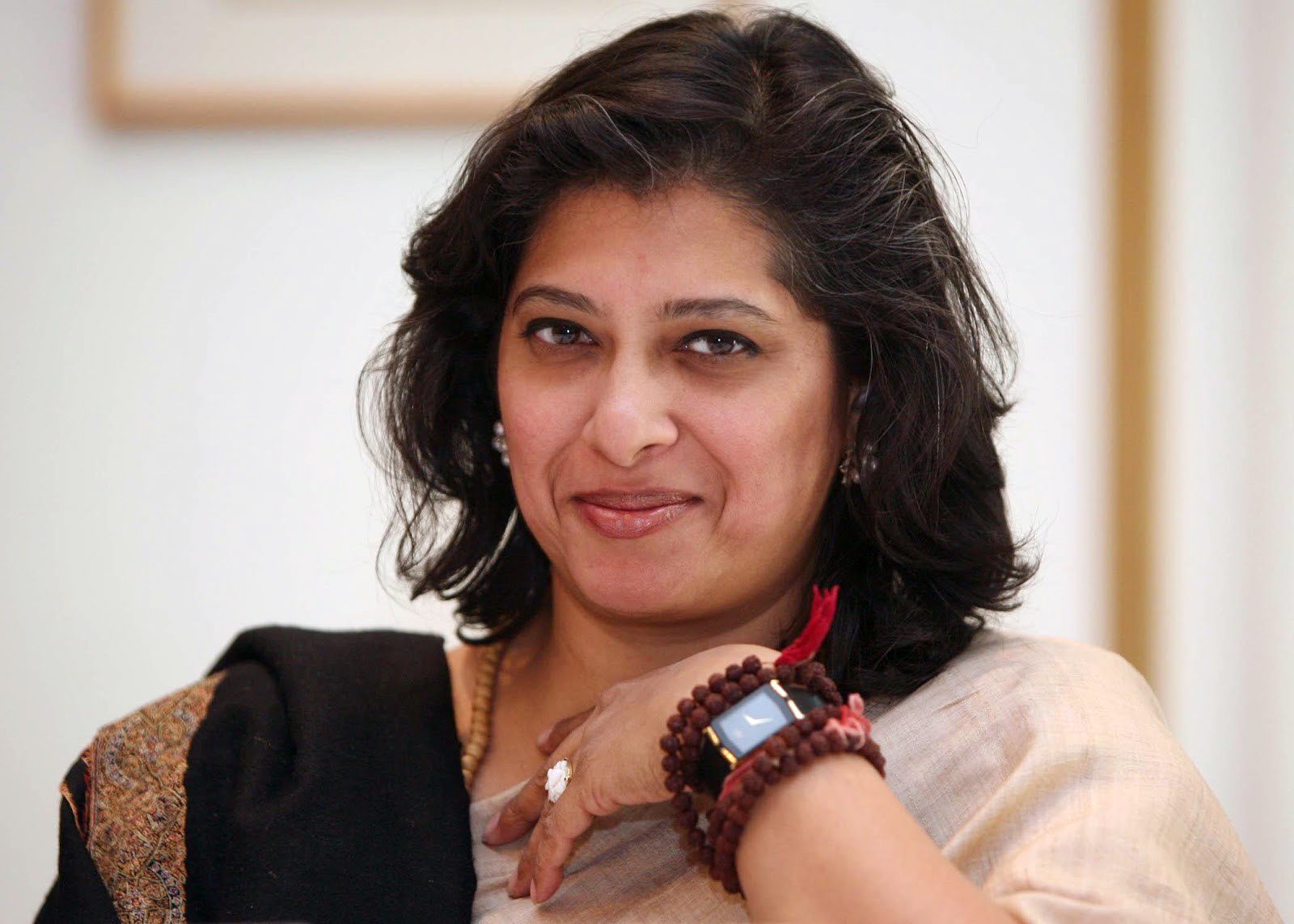
Bhaswati Bhattacharya. Photo via Indic Academy
Dr. Bhaswati Bhattacharya, a holistic medicine practitioner and a clinical assistant professor at New York’s Weill-Cornell Medical College, said ayurveda is reaching a tipping point in its acceptance in the American medical community. In recent years Bhattacharya has been invited to share her knowledge of ayurvedic medicine to both the Food and Drug Administration and the National Cancer Institute at the National Institutes of Health.
As the use of natural Indian herbs and supplements for ailments grows and as doctors recognize to treat each person according to their physical needs, she said, the medical field needs decision-makers and drug executives to advocate for ayurvedic cures.
Robert Graham, founder of Fresh Medicine, said the largest obstacle to achieving the adoption of ayurveda in the conventional medical model is mistrust in its reliability. “The next integration of this field is proving its safety and efficacy,” said Graham, a Harvard-trained physician of internal and integrative medicine.
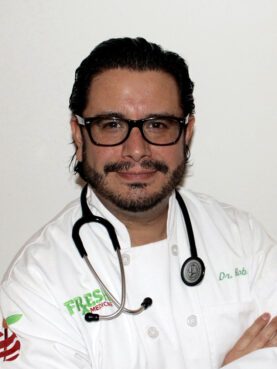
Robert Graham. Photo via Fresh Medicine
Though Indigenous healing practices have shaped the health care model for communities of color for years, Graham said, case studies are not enough. Large, well-funded research projects are necessary to overcome skepticism.
That skepticism is slowly fading. Before being invited to the national stage by government health agencies, Bhattacharya said, she was considered a “quack” doctor by many of her American colleagues.
Groups such as the National Ayurvedic Medical Association are working hard to spread knowledge and awareness of the profession through classes and conferences in hopes of normalizing ayurveda for American audiences.
The website of Johns Hopkins University’s medical school includes a page on ayurveda, which says it can have positive effects as a “complementary therapy” when combined with conventional medicine, but “should not replace standard, conventional medical care, especially when treating serious conditions.”
But while some schools that teach ayurvedic medicine have gained approval as educational institutions, ayurvedic practitioners are still not licensed in the United States, and there is no national standard for ayurvedic certification.
The U.S. pharmaceutical industry, too, which commonly puts barriers on which medicines are made available to citizens, has also resisted further inroads. Ayurvedic medicines are considered dietary supplements, rather than drugs, so they are not required to meet the safety and efficacy regulations of conventional medicines.
As pandemic-scarred Americans search for better, more holistic ways to protect and improve their health, ayurveda’s practitioners say, these last obstacles will fall. “The biggest sale is ayurveda speaking its truth,” said Bhattacharya. “When they heal using ayurveda, then ayurveda has a real potential of having them as a champion.”
